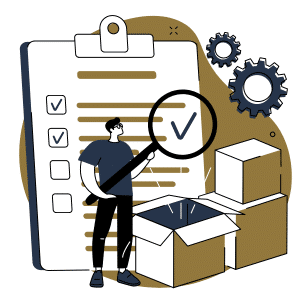Internal Quality Assurance VS External Quality Assurance
 Quality Assurance as a whole is about avoiding problems, and stabilising and improving products/services. This is different from Quality Control, which is about finding problems. But there are two different ‘methods’ of Quality Assurance; Internal Quality Assurance and External Quality Assurance. So what’s the difference?
Quality Assurance as a whole is about avoiding problems, and stabilising and improving products/services. This is different from Quality Control, which is about finding problems. But there are two different ‘methods’ of Quality Assurance; Internal Quality Assurance and External Quality Assurance. So what’s the difference?
What is Internal Quality Assurance?
Internal Quality Assurance (IQA) is the process of monitoring the teaching, learning, and assessment activities that a learner at a training provider will undertake. This is why it is called ‘Internal‘ Quality Assurance. It refers to the Quality Assurance being taken place inside of a training centre, by an internal member of staff. This internal member of staff is called the Internal Quality Assurer, but may just be known as the Quality Manager.
More often than not, IQAs are the Supervisors or Managers within training centres. They’re responsible for the staff, systems, and procedures. Some IQAs will still work as an Assessor and perform both roles; which is all well and good, as long as they aren’t IQAing their own assessment decisions. This would cause a conflict of interest.
To become an Internal Quality Assurer, you will need the two qualifications. The assessor qualification and the IQA qualification. If you’re interested in both qualifications and want to save some money, take a look at our Quality Manager Course Bundle.
What is External Quality Assurance?
External Quality Assurance (EQA) is the process of ensuring that assessment and IQA activities have been conducted in a consistent, safe and fair manner. External Quality Assurance is carried out by the Quality Assurer of the Awarding Body. This must be an Awarding Body that is registered with the Training Provider. So, from an external person. The External Quality Assurance process guarantees that the learners who have been registered with that Awarding Body are currently receiving or had received a quality service. They also check that the assessment and IQA decisions are valid and reliable.
The EQA will monitor the relevant training centre’s processes/practices to ensure they’re meeting the requirements. They also need to support the centre’s staff, and where appropriate, give them advice and guidance on areas for improvement.
To become an External Quality Assurer, you will need the Assessor qualification and an EQA Qualification. EQA qualifications can only be taken with the Awarding Body, such as Pearson Edexcel, as opposed to accredited training providers.
So that’s the difference between the two. In terms of the IQA and EQA’s relationship, it’s important for the IQA to keep in touch with the EQA throughout the year to build a good working relationship.
If you’d like to find out more about the IQA courses we offer here at Brooks and Kirk, contact us today.
Steve is a Chartered Manager and a Fellow of the Chartered Management Institute.
He provides Educational Consultancy to the 19+ sector as well as being an Assessor, IQA, EPA and Digital Marketing Professional. When not doing any of these he finds time, every now and then, to write blogs and articles.
